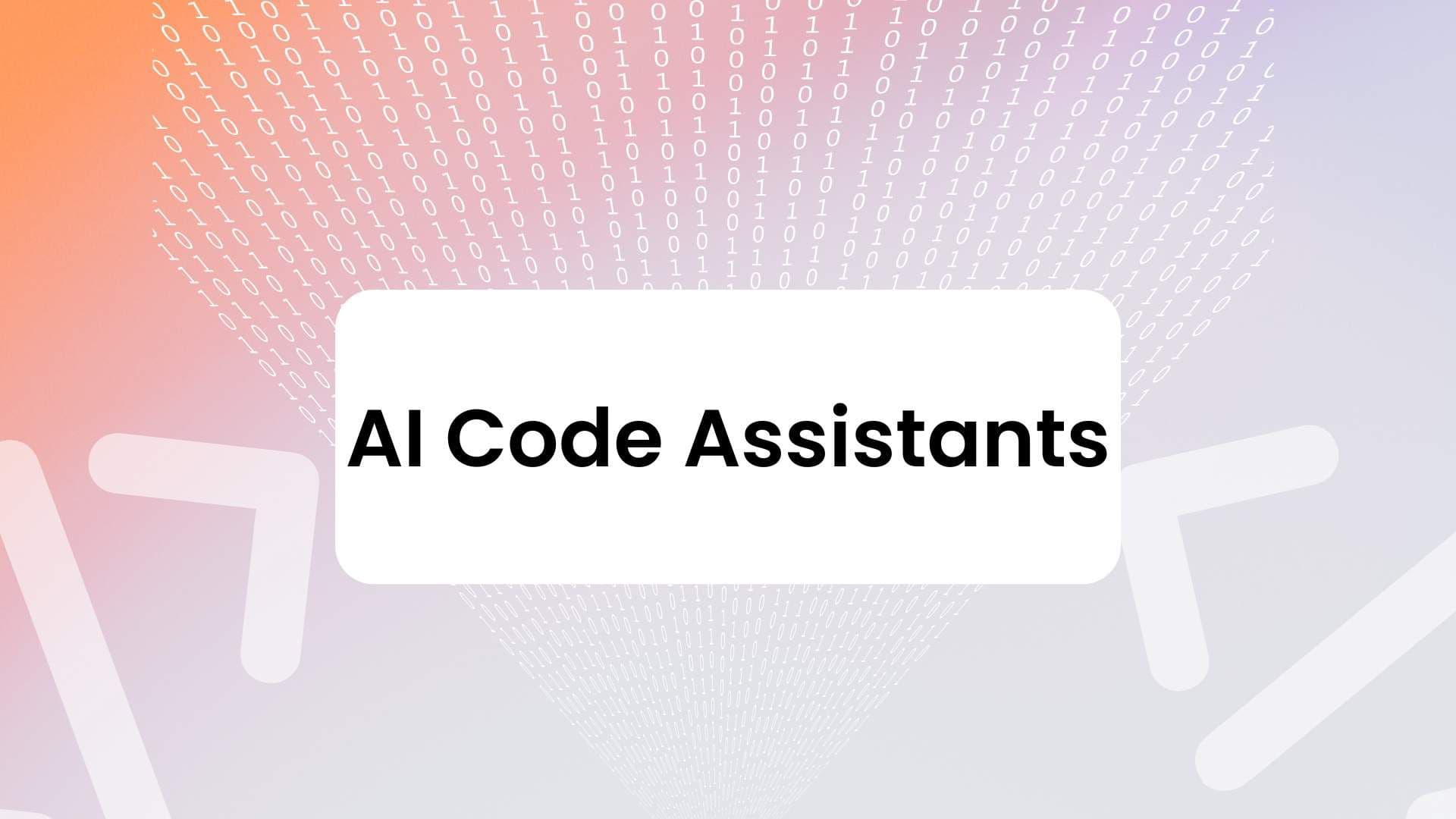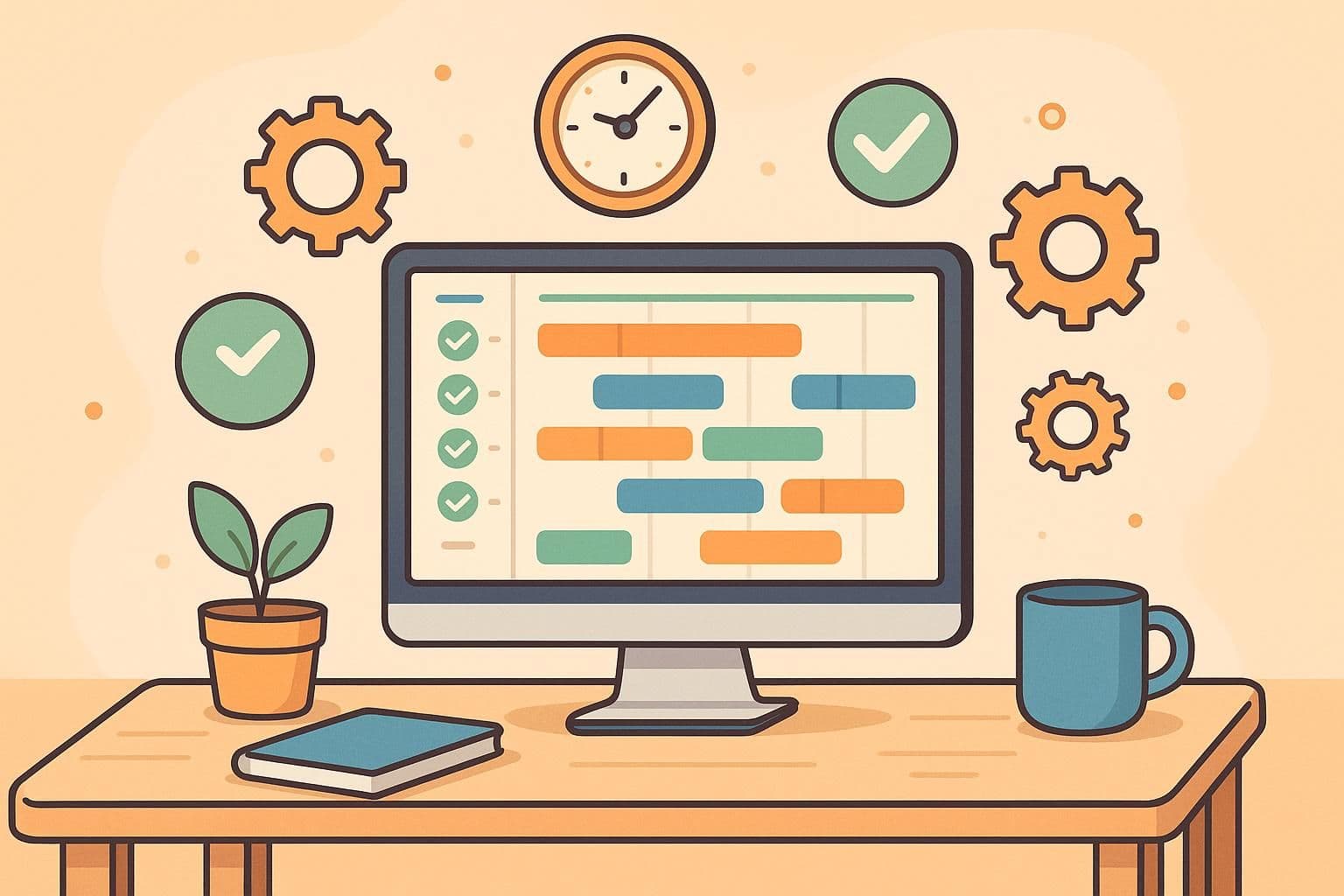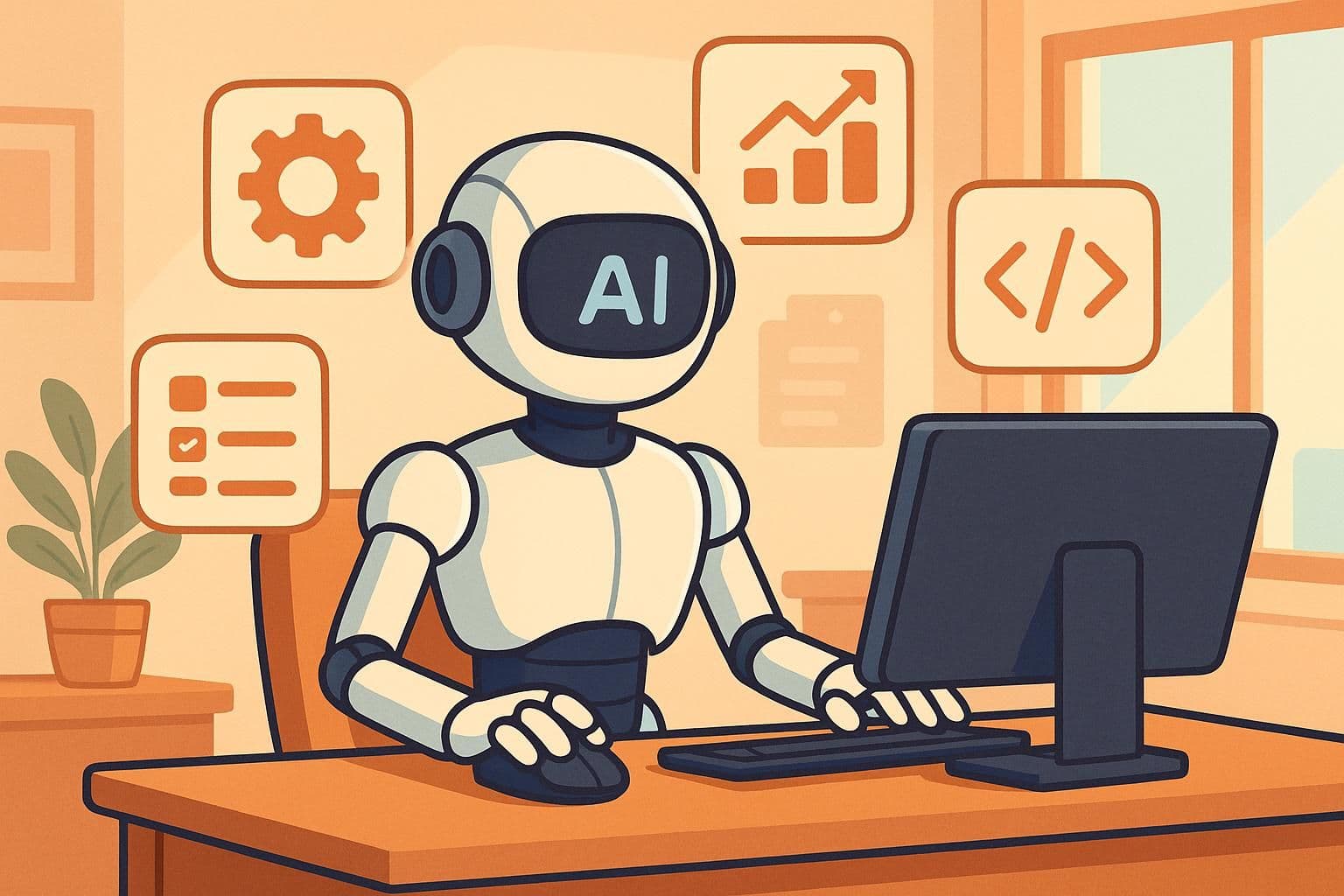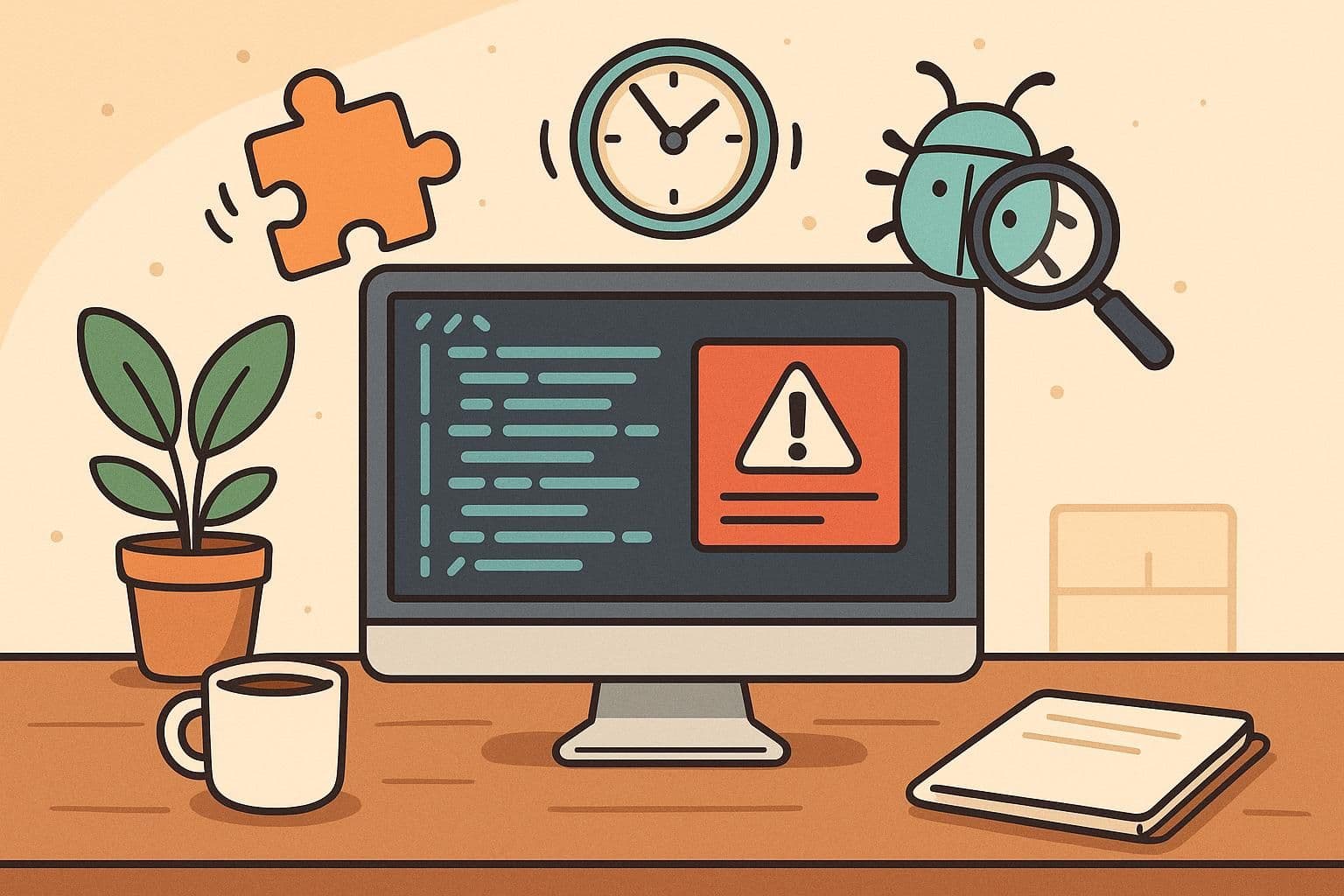AI Code Assistants: Key Capabilities and 5 Tools to Know About
How Can AI Code Assistants Transform Software Development?

AI code assistants, powered by advanced machine learning models, are transforming software development by providing real-time guidance, error detection, and automated code generation. These intelligent tools act as virtual collaborators, enhancing coding speed, productivity, and code quality. This comprehensive guide explores the key capabilities of AI code assistants, their underlying technologies, and introduces 5 cutting-edge tools that are redefining the landscape of software development.
Key Takeaways: AI code assistants enhance coding speed and productivity by providing real-time suggestions and automating routine tasks like, though developers must ensure the quality and integration of generated code. These tools offer extensive features, security measures, and various pricing options, making them adaptable to diverse development needs and budgets.
You can try AI Code Assistant For Free on Latenode - The Best Automation Platform for you 🚀
What Is an AI Code Assistant?
An AI code assistant is a sophisticated software tool that harnesses the power of artificial intelligence to assist programmers in writing code more efficiently and effectively. These tools employ cutting-edge AI algorithms to provide intelligent code suggestions, detect potential errors, and even automate mundane coding tasks. Think of them as highly skilled virtual assistants that can significantly boost coding speed and accuracy, particularly when working with unfamiliar languages or complex frameworks.
The significance of AI code assistants in the modern software development landscape cannot be overstated. By providing real-time coding suggestions, assisting with code documentation, and identifying potential issues before they manifest into full-blown problems, these tools have become indispensable in accelerating the coding process and ensuring adherence to industry best practices.
How AI Code Assistants Work
In the early days of AI code assistants, Natural Language Processing (NLP) techniques formed the backbone of their functionality. These techniques enabled the assistants to analyze vast amounts of code data, identify coding patterns and structures, and generate relevant suggestions or insights based on the processed information.
However, with the rapid advancements in generative AI, modern code assistants have evolved to incorporate state-of-the-art large language models (LLMs) such as GPT-3.5 and GPT-4. These powerful models have significantly expanded the capabilities of AI code assistants, enabling them to deliver even more value and perform a wider range of tasks with remarkable proficiency.
The training process for AI code assistants based on LLMs involves two critical stages. The first stage, known as pre-training, involves exposing the model to an extensive dataset, allowing it to learn the intricacies of natural language and code structure. This foundational knowledge serves as the bedrock upon which the assistant's capabilities are built.
The second stage, referred to as fine-tuning, takes the pre-trained model and further refines its performance by training it on a more specialized dataset. This targeted training enables the AI code assistant to excel in specific coding tasks and adapt to the nuances of particular programming languages or development environments.
Key Features of AI Code Assistants
AI code assistants have revolutionized the software development landscape by offering a suite of powerful features designed to enhance productivity, improve code quality, and streamline the development process. These intelligent tools leverage advanced machine learning algorithms to provide developers with real-time assistance, automate routine tasks, and offer insights that can significantly accelerate coding workflows.
By analyzing vast repositories of code and learning from developers' patterns, AI code assistants have become indispensable partners in the coding process. They not only help in writing code faster but also contribute to maintaining consistency and reducing errors across projects. Let's explore the key features that make these AI-powered tools so valuable:
- Code Suggestions and Autocompletion: Provide real-time code completion based on context, reducing errors and saving time.
- Error Detection and Debugging: Identify potential issues early, offering resolution suggestions before code execution.
- Code Refactoring: Analyze existing code and suggest improvements for efficiency, readability, and maintainability.
- Documentation Generation: Automatically create comments and documentation based on code structure and functionality.
- Contextual Learning: Adapt to project-specific coding styles and conventions by analyzing existing codebases.
These features work together to streamline the coding process, improve code quality, and maintain consistency across large projects and teams. By automating routine tasks and providing intelligent assistance, AI code assistants allow developers to focus on more complex problem-solving and creative aspects of software development.
Top AI Code Assistants for 2024
Exploring the forefront of innovation, the following AI code assistants are set to transform software development in 2024:
1. Latenode
![]()
Latenode stands out as a versatile AI-driven tool that combines low-code development with powerful automation capabilities. It's particularly well-suited for developers seeking to enhance their coding efficiency and automate repetitive tasks with ease.
Key Features:
- Visual Interface for Workflow Design: Latenode offers an intuitive drag-and-drop interface, enabling developers to design complex automation workflows, API endpoints, and data models without extensive coding.
- Pre-built Templates and Validation: The platform provides a rich library of customizable templates that streamline development and ensure robust data validation.
- Advanced Security Measures: Latenode integrates strong authentication, authorization, and encryption features, safeguarding your data and ensuring compliance with industry standards.
- Extensive Database Compatibility: It supports a wide array of databases, allowing seamless integration with existing systems.
- Flexible Integration Options: Latenode easily integrates with popular frontend frameworks such as React, Angular, and Vue, facilitating a smooth development process.
- Customizable Logic: Developers can embed custom code and create unique connectors, tailoring the platform to complex system integrations.
Pricing:
- Free Plan: Ideal for small projects or testing, offering 12 computing hours and 1,500 scenario executions per month.
- Starter Plan ($17/month): Suitable for growing businesses, with increased capacity and AI-assisted development features.
- Grow Plan ($97/month): Designed for scaling operations, providing extensive execution capacity and collaboration tools.
- Prime Plan ($297/month): An enterprise-grade solution with advanced capabilities and extensive scenario executions.
- Enterprise Plan: Custom pricing available for organizations needing dedicated support and enhanced security features.
Example of AI-Powered Code Automation with Latenode:
A typical use case for Latenode involves automating the process of fetching user data from a public API and sending notification emails when new users are added.
![]()
- Data Retrieval: Latenode sends an HTTP GET request to the specified API endpoint to retrieve user data, handling necessary content-type headers.
- Data Parsing: The platform parses the JSON response, extracting relevant user information such as user ID, name, and email.
- Data Storage: Extracted user data is stored for future comparisons, allowing the system to identify new users.
- Data Comparison: Using a JavaScript script, Latenode compares current user data with previously stored data, identifying new users by checking for unique user IDs.
- Email Notification: If new users are detected, Latenode sends a detailed email notification to the relevant parties, including the names and emails of the new users.
- Scheduling: The workflow is scheduled to run daily, ensuring that user data remains updated and any new users are promptly communicated.
![]()
Latenode’s visual interface allows developers to see the entire automation process at a glance, providing a clear overview of how data flows through the system and how each task is executed.
Latenode offers one of the best free AI platforms for automating your development workflows. For those needing assistance in creating custom scripts or replicating the provided example, the Latenode community on Discord is available to help.
You can try AI Code Assistant For Free on Latenode - The Best Automation Platform for you 🚀
2. GitHub Copilot
![]()
GitHub Copilot is a revolutionary AI-powered code assistant developed by GitHub in collaboration with OpenAI. It seamlessly integrates with popular code editors like Visual Studio Code, providing developers with real-time code suggestions as they type. GitHub Copilot supports a wide range of programming languages and is designed to enhance coding productivity by generating entire lines or blocks of code based on natural language descriptions or existing code context.
Key Features:
- Real-time Code Suggestions: Automatically suggests code completions as you type, including entire functions or code snippets.
- Multilingual Support: Works across a broad spectrum of programming languages, from Python and JavaScript to Go and Ruby.
- Contextual Understanding: Generates relevant code by understanding the context of your current project, including comments and previous code.
- AI Pair Programming: Acts as an AI pair programmer, providing suggestions and helping solve coding challenges in real-time.
Pricing:
![]()
- The Free Plan is available at $0 USD per user per month, providing the basic features suitable for individuals and organizations.
- The Team Plan is priced at $4 USD per user per month, offering advanced collaboration features for individuals and organizations, including everything in the Free plan plus additional tools for team collaboration.
- The Enterprise Plan costs $21 USD per user per month and is designed for organizations that require enhanced security, compliance, and flexible deployment options. It includes all features from the Team plan along with added enterprise-level capabilities
GitHub Copilot is designed to streamline the development process, making coding faster and more intuitive, especially for repetitive tasks or complex projects.
3. Amazon CodeWhisperer (also known as Amazon Q Developer)
![]()
Amazon CodeWhisperer, recently rebranded as Amazon Q Developer, is a robust AI code assistant designed to boost developer productivity through real-time code suggestions. It integrates smoothly with popular Integrated Development Environments (IDEs) like Visual Studio Code, JetBrains, and AWS Cloud9, and supports multiple programming languages, making it a versatile tool for diverse development needs.
Key Features:
- Real-time Code Recommendations: Provides intelligent code suggestions as you write, speeding up the coding process.
- Security Scanning: Automatically scans your code for security vulnerabilities and suggests fixes.
- Documentation Assistance: Helps in generating code documentation, ensuring your codebase is well-documented.
- Seamless IDE Integration: Works natively with popular IDEs, offering a consistent and efficient development experience.
Pricing:
![]()
- Free Plan: Limited to 50 hours of use per month, suitable for small projects or personal use.
- Professional Plan ($19/month): Offers unlimited usage with enhanced features for growing teams.
Amazon Q Developer is ideal for developers looking to enhance their coding efficiency while ensuring security and code quality.
4. Tabnine
![]()
Tabnine is an AI-powered code completion tool that has gained popularity for its ability to provide accurate and context-aware code suggestions. It integrates with various IDEs and supports a wide array of programming languages, helping developers write code faster and with fewer errors. One of Tabnine’s standout features is its ability to learn from your codebase, providing personalized suggestions that match your coding style.
You can try AI Code Assistant For Free on Latenode - The Best Automation Platform for you 🚀
Key Features:
- AI-Powered Code Completion: Offers intelligent code suggestions based on context, reducing the need for manual typing.
- Supports Multiple Languages: Compatible with numerous programming languages, including Python, JavaScript, Java, and more.
- Learning from Codebase: Learns from your code and adapts suggestions to your coding style, ensuring consistency across projects.
- Integration with IDEs: Seamlessly integrates with popular IDEs like VS Code, IntelliJ, and Sublime Text.
Pricing:
![]()
- Pro Plan ($12/month): Enhanced features and AI model customization options for individual developers.
- Enterprise Plan($39/month): Custom pricing for teams needing collaborative features and shared AI models.
Tabnine is a valuable tool for developers seeking to improve their coding speed and maintain consistency across their projects.
5. Replit Ghostwriter
![]()
Replit Ghostwriter is a unique AI code assistant that focuses on generating code snippets based on natural language descriptions. This feature allows developers to express their ideas in plain English and have Ghostwriter generate the corresponding code. It is integrated within the Replit online IDE, making it an excellent choice for quick prototyping and learning new coding concepts.
Key Features:
- Natural Language Code Generation: Converts plain English descriptions into functional code, making coding more accessible.
- Supports Multiple Languages: Works with various programming languages, helping developers quickly prototype ideas.
- Integrated with Replit IDE: Natively built into Replit, providing an all-in-one platform for coding, learning, and collaboration.
- Real-time Collaboration: Enables live collaboration, making it easy to work with others on the same project.
Pricing:
![]()
- The Starter Plan is free and designed for beginners learning the basics of coding and development. It includes a basic workspace, limited access to Replit AI, community support, and allows for up to 3 public projects.
- The Replit Core Plan is available at $10 per month, billed annually. This plan is ideal for solo developers who need premium features. It includes $10 of flexible credits each month, unlimited basic responses for AI chat, access to an advanced AI model, a more powerful workspace, and the ability to create unlimited public and private projects. Member support is also included. If you're interested in sponsoring multiple seats for students or community developers, you can contact Sales for more information.
- The Teams Plan is tailored for groups looking to extend Replit's capabilities to their entire team. While annual pricing is coming soon, this plan includes everything in the Replit Core membership, along with $10 of flexible credits per user each month, centralized billing, role-based access control, and an even more powerful workspace. For questions about the Teams plan, you can contact Sales.
- The Enterprise Plan is coming soon and is designed for teams with greater security, support, and performance needs. It includes everything in the Teams plan, plus additional features like Single Sign-On (SSO), a single tenant in Google Cloud Platform (GCP), custom pricing, and dedicated support.
Replit Ghostwriter is perfect for developers who want to quickly translate their ideas into code or explore new programming concepts in an easy-to-use environment.
General-Purpose Code Assistants
In the realm of AI code assistants, general-purpose tools have gained significant popularity due to their versatility and wide-ranging capabilities. These assistants cater to a broad spectrum of programming languages and development environments, making them valuable for developers working on diverse projects.
Here's an overview of some popular general-purpose tools:
- GitHub Copilot Developed by GitHub in collaboration with OpenAI, it integrates seamlessly with the GitHub ecosystem. Features include support for multiple programming languages, real-time code suggestions, multilingual support, and AI pair programming.
- Amazon Q Developer (formerly Amazon CodeWhisperer) Designed to boost coding efficiency, it offers real-time code recommendations, integration with popular IDEs, support for multiple programming languages, security scanning, and documentation assistance.
- Tabnine This AI-powered code completion tool provides accurate and context-aware code suggestions. It adapts to the user's coding style and supports a wide array of programming languages with robust autocompletion capabilities.
- Replit Ghostwriter Taking a unique approach to code assistance, Ghostwriter generates code snippets based on natural language descriptions. It supports multiple programming languages and integrates seamlessly with the Replit online IDE.
- Codium Going beyond mere code completion, Codium offers in-depth code analysis, improvement suggestions, and optimization recommendations. It features automated test generation and supports popular programming languages and IDEs.
These general-purpose tools provide developers with a range of capabilities to enhance productivity and code quality across various projects and development environments.
Pros & Cons of AI Coding Assistants: Speed vs Quality
AI code assistants have revolutionized the way developers approach their work, offering numerous benefits while also presenting some challenges.
Pros of AI Coding Assistants:
- Boost productivity and efficiency by reducing coding time and automating routine tasks
- Allow developers to focus on critical aspects like problem-solving and architecture design
- Aid in error reduction by spotting inconsistencies early in the coding process
Cons of AI Coding Assistants:
- Quality of output may not always meet the highest standards
- Risk of overreliance, potentially leading to stagnation of developers' skills
- Require careful review and integration to ensure alignment with best practices
In real-world scenarios, AI coding assistants have proven valuable in streamlining development workflows. However, developers must strike a balance between leveraging these tools and maintaining their own expertise. Careful integration and ongoing monitoring are essential to ensure AI-generated code aligns with the existing codebase and doesn't introduce technical debt or security vulnerabilities..
Our Recommendations for the AI Assistants
When it comes to selecting an AI coding assistant, there is no one-size-fits-all solution. The choice ultimately depends on your specific development needs, budget, and preferred coding environment. Each tool offers its own unique set of features and capabilities, catering to different programming languages, integration options, and pricing models.
To make an informed decision, it is crucial to assess your project requirements and identify the key features that are most important to you. Consider factors such as the programming languages you work with, the level of customization and integration you require, and the specific tasks you want the AI assistant to help with, such as code completion, error detection, or documentation generation.
It is also essential to evaluate the pricing structure of the AI coding assistants you are considering. While many tools offer free tiers for basic usage, more advanced features and increased usage limits often come with paid plans. Assess your budget and determine which pricing model aligns best with your needs and the scale of your projects.
When making your choice, prioritize tools that seamlessly integrate with your existing development environment and workflow. Look for AI assistants that offer robust support for the programming languages and frameworks you work with, ensuring a smooth and efficient coding experience.
Ultimately, the goal is to select an AI coding assistant that enhances your productivity and code quality without compromising on the specific requirements of your projects. By carefully evaluating your needs and comparing the features and capabilities of different tools, you can find the perfect AI assistant that complements your skills and helps you write better code faster.
Conclusion
AI code assistants have significantly transformed software development, enabling developers to write cleaner, more efficient code at an unprecedented pace. These tools offer a wide range of capabilities, from intelligent code suggestions to documentation generation.
While AI assistants enhance productivity and code quality, they are not a replacement for human expertise. Developers must balance leveraging these tools with maintaining their own skills and critical thinking abilities.
As AI continues to advance, we can expect these assistants to become more sophisticated and integral to the development process. The key to success lies in finding the right AI code assistant that aligns with specific needs and development environments.
Looking ahead, AI code assistants will continue to shape software development, empowering developers to push boundaries and create innovative solutions. By embracing these tools wisely, developers can unlock new levels of productivity and creativity, paving the way for a more efficient future in software development.
You can try AI Code Assistant For Free on Latenode - The Best Automation Platform for you 🚀
FAQ
How do I choose the right AI code assistant for my needs?
Consider the programming languages supported and ensure integration with your development environment. Evaluate required features like code completion and error detection. Factor in your budget and review pricing plans. Read user reviews and compare different tools. Assess these aspects to find an AI assistant that best fits your specific needs and workflow.
How reliable is the code generated by AI code assistants?
AI-generated code can be functional but varies in quality and efficiency. Treat it as a starting point, not a final solution. Always review and test thoroughly before integration. AI assistants augment human developers but don't replace their expertise. Combine AI capabilities with human oversight for best results.
Can AI code assistants completely replace human developers?
No, AI code assistants can't fully replace human developers. They boost productivity but require human oversight, decision-making, and expertise. Many aspects of software development, like problem-solving and architecture design, need human creativity and critical thinking that AI can't replicate.
Are there any security concerns with using AI code assistants?
Yes, especially with online tools processing sensitive code. Choose reputable providers and consider on-premises options. Always review generated code for vulnerabilities and ensure it follows secure practices. Use AI assistants responsibly to benefit from their capabilities while minimizing security risks.
How do AI code assistants handle different coding styles and conventions?
Advanced AI assistants learn from existing codebases to match styles and conventions. They analyze patterns and tailor suggestions accordingly. However, they may not perfectly adhere to all standards. Developers should review generated code, provide clear style guides, and make adjustments as needed to maintain consistency and readability.



